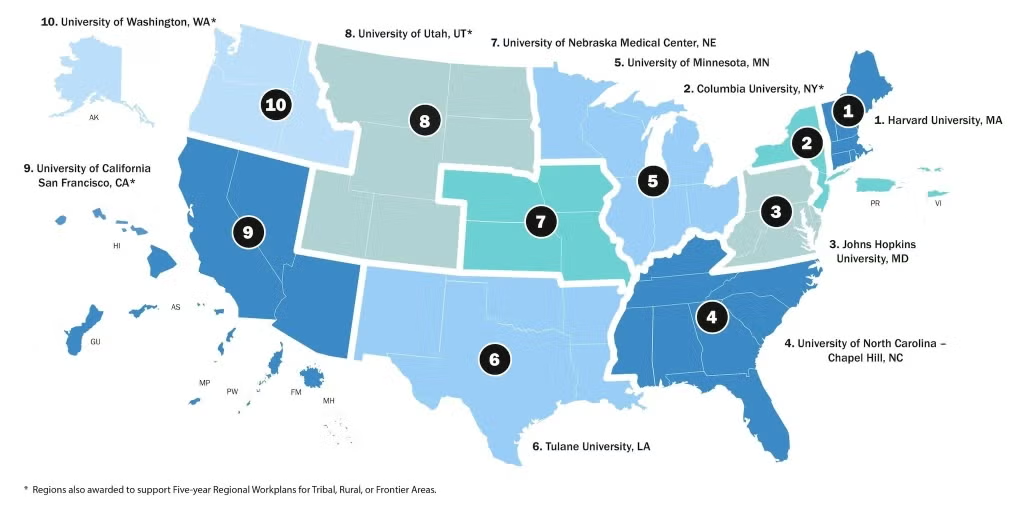Emergency Preparedness Research, Evaluation, & Practice Program
We offer training and technical assistance to public, private, and non-governmental organizations to help them prepare for and respond to emergencies.
677 Huntington Ave,
Boston, MA 02115
Projects
EPREP Projects

HHS Region 1 Center for Public Health Preparedness and Response
The EPREP Program was awarded funding to support the HHS Region 1 (New England) Center for Public Health Preparedness and Response by the Centers for Disease Control and Prevention’s Office of Readiness and Response (ORR), Division of Readiness and Response Science (DRRS). This project focuses on advancing the uptake of evidence-based strategies enhancing the region’s ability to prepare for and respond to public health threats covering six states and a population of 15 million people.

IRIS Academic Research Group
The EPREP Program at Harvard Chan School is a co-founder of the IRIS Coalition, a collaborative network of faculty from seven universities, including the London School of Hygiene and Tropical Medicine, the University of Cambridge, La Sapienza University of Rome, Ca’ Foscari University of Venice, the City University of London, and King’s College London, working together to understand infodemics and promote healthy information ecosystems.

Evidence Synthesis in Preparedness
The EPREP Program has vast experience in developing literature reviews in emergency preparedness. Such reviews have been used by the World Health Organization (WHO) to support the creation of the Guidance on Communicating Risk in Public Health Emergencies in 2018 and by the National Academies of Sciences, Engineering and Medicine (NASEM) in 2020 to facilitate discussion regarding the development of a research agenda in public health emergency preparedness and response.

Regional Disaster Health Response System (RDHRS)
The EPREP Program is collaborating with Regions 1, 7, and 8 in the Regional Disaster Health Response System (RDHRS) demonstration project. The RDHRS exists to develop innovative mechanisms that link experts in health care disaster response with other key health care, governmental, and community partners and stakeholders to improve coordination of planning and response activities and support optimal patient care during disasters.

Community Safety Evaluation Lab (CSE-Lab)
Violence is of public health concern, and disciplines such as social science, epidemiology, behavioral science and risk-communication, commonly used to tackle public health problems, can successfully contribute to addressing violence and improve community safety and security.